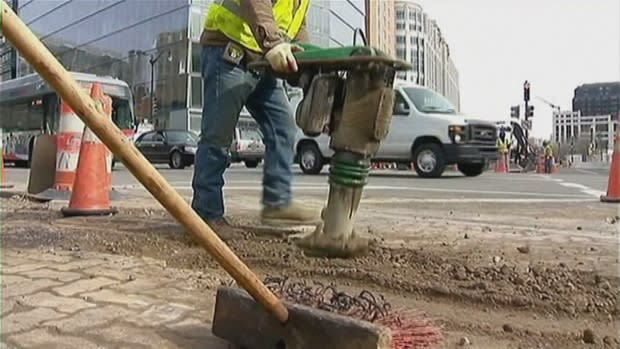Demise of provincial funding program leaving 'gaping holes' in capital budgets, AUMA says
With the program the province uses to fund local building projects across Alberta coming to an end, cities and towns are worried the uncertainty about its replacement will leave gaping holes in their capital budgets.

The Municipal Sustainability Initiative is a comprehensive funding formula that, according to information on the government of Alberta website, has paid almost $9.6 billion to municipalities for ongoing infrastructure projects since it began in 2007.
"Our MSI ends in 2021 and there's going to be significant issues trying to fund anything beyond that point," said Barry Morishita, president of the Alberta Urban Municipalities Association.
Morishita says around this time of year, municipalities of all sizes unveil long term spending plans for capital projects.
"Water, roads, fire protection, all those kinds of things are based at the community level," said Morishita, who points out that responsibility for services needed to enhance quality of life falls entirely on municipalities.
"It's extremely important," he said.
The projects range from sidewalk repairs, to major undertakings, such as the LRT expansion in Edmonton.
Uncertainty going forward
Under the new Municipal Government Act, municipalities are required to present five-year capital budgets, Morishita said
Without knowing what the new funding formula will look like, municipalities can only guess at what they'll have to work with, he said.
"We're not allowed to run deficits, and without the support of a program like MSI, there's going to be a lot of issues going forward," said Morishita, who is hopeful the province will introduce a new formula this fall.
"We are holding the government to their announcement in the spring budget that they would be bringing legislation in this fall that would point to a stable predictable legislated solution," he said.
Edmonton Mayor Don Iveson said he too was expecting legislation this fall, to cement a new grant formula which in the past was "highly politicized."
"There's a chance to do right by municipalities and get this done," said Iveson.
"I'll continue to work with them to get to the finish line on that."
More consultation
Municipal Affairs Minister Shaye Anderson is downplaying expectations he will be unveiling a new funding formula this fall.
"It's still being worked on," Anderson said in Beaumont where he's meeting with mid-sized city mayors.
"Last year we talked about wanting to get to it sooner rather than later, but quite frankly, I want to make sure we have something that works for everybody," he said.
"I don't want to force something through really quickly without doing the right consultation on it," Anderson told CBC news.
Anderson says he's hopeful, a new municipal funding formula will be in place before the next provincial election expected in the spring of 2019.
"That's our goal," said Anderson who added he doesn't want to presuppose the outcome of continued consultation with municipal partners.
"Right now, Alberta funds our municipalities more generously than any municipalities in Canada," he said.
'We don't have all the information either'
Anderson said he understands the constraints on local governments to create long term capital funding plans, however he says budgeting with a degree of uncertainty is a reality for all levels of government.
"I think it's something we all deal with in our budgets," said Anderson. "We're not naive to the fact that it's nice to have all the information, but we don't have all the information either," he added.
In a speech to the AUMA Sept. 27, Premier Rachel Notley said the province is in the process of developing a new revenue-sharing agreement to replace MSI, that includes a long-term transit plan.
Notley said her government was committed to having the new system in place and operational by the time MSI expires in 2021/2022.
Uncertainty about a new funding formula with the province isn't the only challenge plaguing municipal governments.
In its capital budget summary released Thursday, the City of Edmonton pointed out that current MSI funding "has been reduced by $61 million per year over the next three years."

